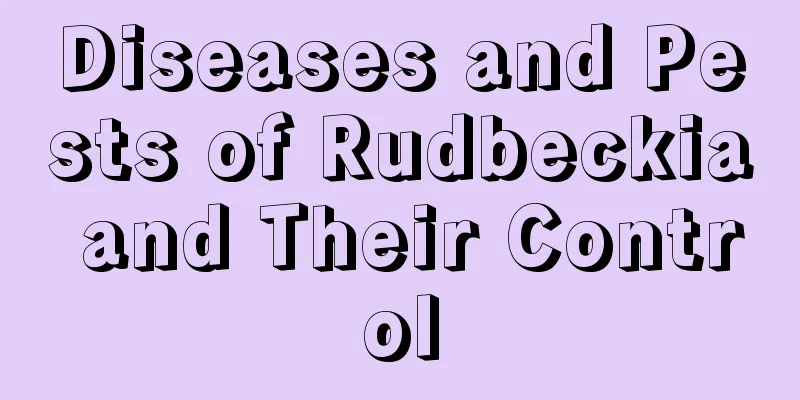Diseases and Pests of Rudbeckia and Their Control

Diseases and their control of RudbeckiaBotrytis cinereaGray mold is one of the common diseases of Rudbeckia radiata, which mainly harms the leaves and stems of the plant, causing them to appear spots or rot. Gray mold disease usually occurs when the humidity is high. The fungal spores multiply and infect the blackheart chrysanthemum, causing lesions. A major factor causing gray mold disease in black chrysanthemum is the environment, so management needs to be strengthened, watering and fertilizing should be done reasonably, and attention should be paid to ventilation, timely drainage during the rainy season, and hygiene should be maintained. When gray mold occurs on black heart chrysanthemum, it is necessary to spray pesticides in time for treatment. MosaicWhen black chrysanthemum suffers from mosaic disease, spots or mosaics will appear on the leaves, and the leaves will become smaller and deformed. Mosaic disease is mainly caused by viruses and can be spread by insects. When planting black chrysanthemum, you need to choose healthy and disease-free plants. To prevent mosaic disease, you need to control pests and spray some pesticides. Root rotRoot rot is a common plant disease, and blackthorn sometimes also suffers from this disease, mostly because of too much water, waterlogging in the soil, poor drainage, and poor ventilation. To prevent and control root rot, pay attention to proper watering and keep the growing environment ventilated. If root rot occurs, it needs to be treated in time. Pests of Rudbeckia serrata and their controlPests of RudbeckiaThe main pest of blackthorn is aphids, which will occur when aphids are prevalent. Aphids are very harmful. Not only can they cause lesions on the leaves of Rudbeckia and even the entire plant, but they can also lead to diseases such as mosaic disease. Aphid controlAphids are difficult to control and need to be treated promptly once they are discovered. Mainly rely on manual capture, make some safe pesticides to kill insects, and pay attention to keeping the environment ventilated. |
<<: Diseases and Pests of Gerbera and Their Control
>>: Diseases and Pests of Pteris fasciata and Their Control
Recommend
How to Plant Clover Seeds
1. Sowing time Spring and autumn are the best sea...
Does Chlorophytum comosum have flower language? I have raised you for most of my life, but you don't even know
Pothos Flower language: Watching for happiness To...
Cultivation methods and precautions of large-leaf fiddle-leaf fig How to grow potted fiddle-leaf fig
The leaves of the large-leafed Ficus microcarpa a...
When is the best time to plant lotus root?
Lotus root is a root vegetable that mainly grows ...
What are the legends and meanings of Daphne odora?
1. The meaning of Daphne koreana’s flower languag...
How to grow cherry radish in potted plants
Farming location The most suitable place to grow ...
How to grow spider silk succulent to its best condition
The shape of the spider silk scroll is very speci...
How to grow daffodils in autumn
1. Temperature Temperature is very important beca...
The 10 Roses with the Longest Flowering Periods: Plant One and Enjoy the View for Half a Year
1 Cream Lonza It is generally recognized that the...
When is the best time to sow shepherd's purse?
Shepherd's purse belongs to the genus Capsell...
How long is the growth cycle of licorice?
Introduction to Licorice Growth Artificially cult...
Camellia cultivation methods and precautions
Camellia is deeply favored by flower lovers for i...
What is the best season to plant carnations?
Which month is suitable for planting carnations? ...
Can Guanyin Bamboo be poured with beer?
Can Guanyin Bamboo be watered with beer? Generall...
What is peat soil
Introduction to Peat Soil Peat soil is the produc...









